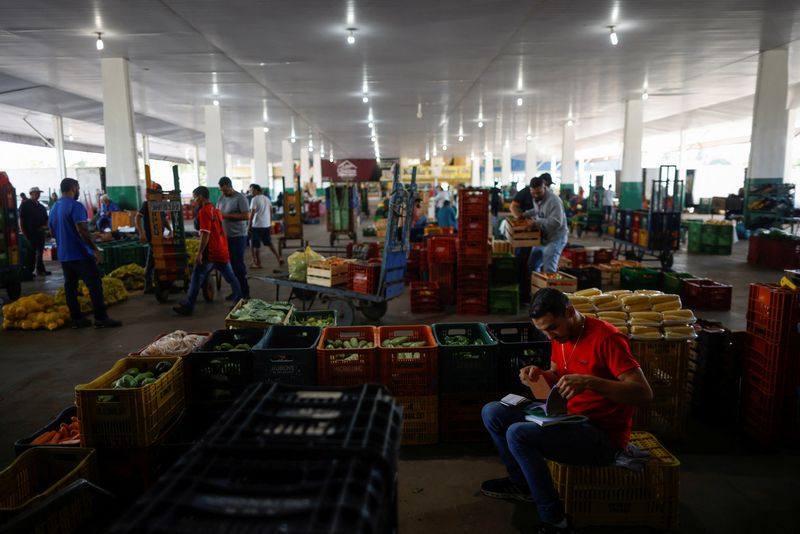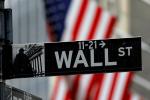
- All Instrument Types
- Indices
- Equities
- ETFs
- Funds
- Commodities
- Currencies
- Crypto
- Bonds
- Certificates
Please try another search

Brazil inflation hits 2-1/2 year low; cenbank pressured to lower rates
 © Reuters. People are seen buying from a supply centre (CEASA) in Brasilia, Brazil May 9, 2023. REUTERS/Adriano Machado
© Reuters. People are seen buying from a supply centre (CEASA) in Brasilia, Brazil May 9, 2023. REUTERS/Adriano Machado
SAO PAULO (Reuters) - Inflation in Brazil continued to slow down in early May, data from statistics agency IBGE showed on Thursday, in a move that surprised markets and is likely to put more pressure on the central bank to lower interest rates.
The local IPCA-15 consumer price index reached 4.07% in the 12 months to mid-may, decelerating from 4.16% in the previous month and hitting its lowest level since October 2020, according to IBGE.
Economists polled by Reuters had forecast consumer prices to accelerate to 4.20% in the month.
The fresh figures come amid intense pressure from President Luiz Inacio Lula da Silva on the central bank to cut rates from their current six-year high of 13.75%, a level the monetary authority defends as necessary to drive inflation back to target but the leftist leader sees hindering economic growth.
"The IPCA-15 came in below forecasts, reinforcing our view that the worst of inflation is behind us and the central bank may start cutting interest rates at its August meeting," said Jose Faria Junior, a financial planner at Planejar.
Central bank Chief Roberto Campos Neto, however, has been rebuffing the calls for lower rates by saying core consumer prices remain high while long-term inflation expectations are stuck around 4%.
On Thursday, in a pre-recorded video exhibited at an event hosted by Moody's (NYSE:MCO), Campos Neto said the disinflation process in Latin America's largest economy was not over yet and reiterated the importance of taking inflation back to target.
Brazil has an inflation target of 3.25% for 2023, which will be lowered to 3% in 2024.
Private economists polled by the central bank on a weekly basis currently see inflation ending this year at 5.8%, with the annual headline index gaining ground in coming months, and decelerating to 4.13% by the end of 2024.
"Policymakers will probably need to see more evidence that core inflation and inflation expectations are coming down before bringing interest rate cuts onto the cards," Capital Economics' chief emerging markets economist William Jackson said.
In the month to mid-May, according to IBGE, consumer prices rose 0.51%, down from 0.57% in the previous month. The index had been expected to rise 0.64%, according to the median forecast in a Reuters poll.
Related Articles
Are you sure you want to block %USER_NAME%?
By doing so, you and %USER_NAME% will not be able to see any of each other's Investing.com's posts.
%USER_NAME% was successfully added to your Block List
Since you’ve just unblocked this person, you must wait 48 hours before renewing the block.
I feel that this comment is:
Thank You!
Your report has been sent to our moderators for review






Add a Comment
We encourage you to use comments to engage with other users, share your perspective and ask questions of authors and each other. However, in order to maintain the high level of discourse we’ve all come to value and expect, please keep the following criteria in mind:
Enrich the conversation, don’t trash it.
Stay focused and on track. Only post material that’s relevant to the topic being discussed.
Be respectful. Even negative opinions can be framed positively and diplomatically. Avoid profanity, slander or personal attacks directed at an author or another user. Racism, sexism and other forms of discrimination will not be tolerated.
Perpetrators of spam or abuse will be deleted from the site and prohibited from future registration at Investing.com’s discretion.